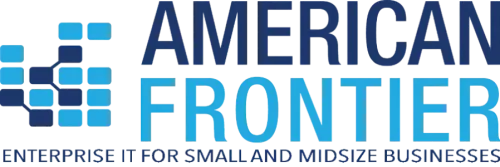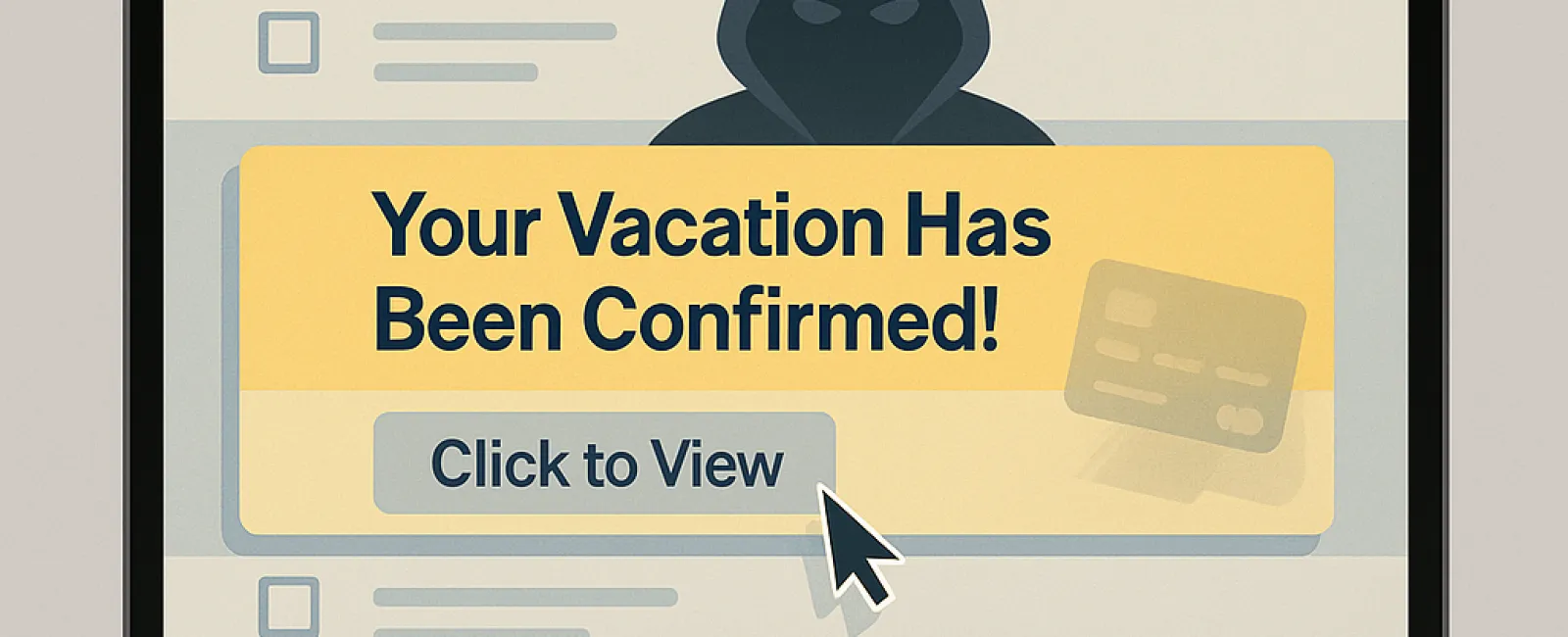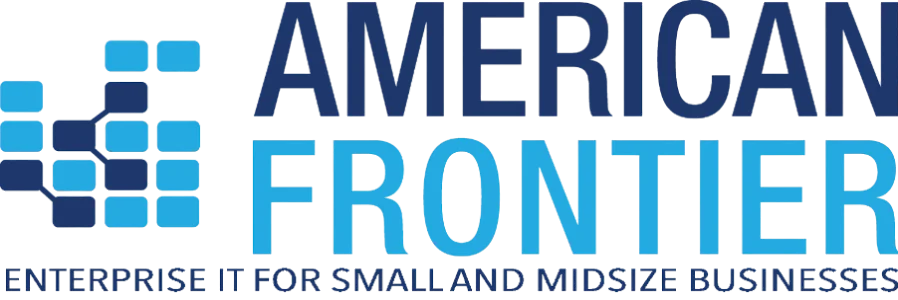May 12, 2025
Planning your next getaway? Before clicking any links in your confirmation email, make sure it's authentic!
As summer approaches, cybercriminals are targeting travelers by sending fraudulent booking confirmations that mimic emails from airlines, hotels, and travel agencies. These deceptive messages aim to steal your personal and financial data, hijack your accounts, and even infect your devices with harmful malware.
Even the most tech-savvy travelers have been caught off guard.
How This Scam Unfolds
A Fake Booking Confirmation Hits Your Inbox
●
The email appears to be from trusted travel brands like Expedia, Delta, or Marriott.
●
Scammers use official logos, professional formatting, and even legitimate-looking customer support numbers.
●
Subject lines create urgency to prompt quick action:
○
"Your Trip To Miami Has Been Confirmed! Click Here For Details"
○
"Your Flight Itinerary Has Changed - Click Here For Updates"
○
"Action Required: Confirm Your Hotel Stay"
○
"Final Step: Complete Your Rental Car Reservation"
Clicking The Link Redirects You To A Fraudulent Website
●
The email urges you to "log in" to verify details, update payment info, or download your itinerary.
●
Following the link leads to a convincing but fake site designed to capture your login credentials.
Hackers Steal Your Data And Money
●
If you enter your login details, hackers gain access to your airline, hotel, or financial accounts.
●
Submitting payment information can result in stolen credit card data and fraudulent charges.
●
If the link contains malware, your device and all its data could be compromised.
Why This Scam Works So Well
- It Looks Authentic: These phishing emails perfectly replicate real confirmations — logos, layouts, and even familiar links.
- It Creates Urgency: Alerts about "reservation problems" or "flight changes" cause panic, prompting rushed decisions.
- People Are Distracted: Whether busy at work or excited for travel, many don't carefully verify email legitimacy.
- It's A Business Threat Too: Beyond personal risk, this scam poses significant dangers to companies.
If you or your team travel for work, the risk intensifies. Often, one person manages all bookings — flights, hotels, rentals, and conferences.
With numerous confirmation emails, a fake one can easily slip by. A single click from your office manager, travel coordinator, or assistant could:
●
Put your company credit card at risk of fraud.
●
Compromise corporate travel account credentials.
●
Introduce malware into your company network via malicious attachments.
Steps To Safeguard Yourself And Your Business
- Always Verify Before Clicking - Visit the airline, hotel, or booking site directly instead of using email links.
- Inspect The Sender's Email Address - Scammers use addresses that are similar but not exact (e.g., "@deltacom.com" vs. "@delta.com").
- Educate Your Team - Train employees to spot phishing scams, especially those managing travel bookings.
- Activate Multifactor Authentication (MFA) - MFA provides an extra layer of protection even if credentials are stolen.
- Secure Business Email Accounts - Implement security measures to block harmful links and attachments.
Protect Your Business From Costly Fake Travel Emails
Cybercriminals know exactly when to strike — and travel season offers the perfect opportunity.
If anyone on your team books work travel, manages reservations, or handles expenses, you are a prime target.
Let's ensure your business stays secure.
Start with a FREE 15-Minute Discovery Call. We'll identify vulnerabilities, boost your defenses, and protect your team from phishing threats like this.
Click here or call us at 919-741-5468 to schedule your FREE 15-Minute Discovery Call today!





